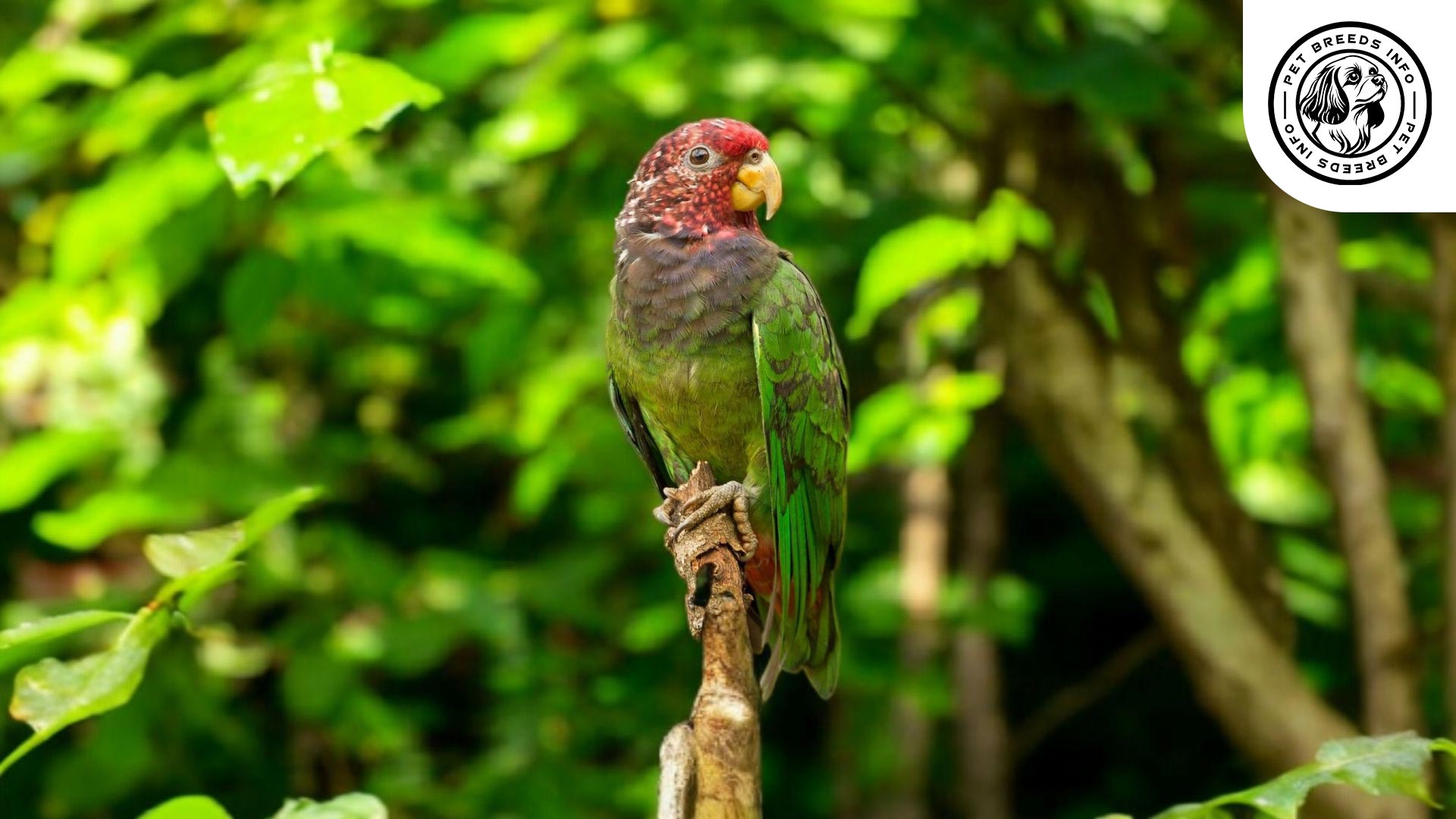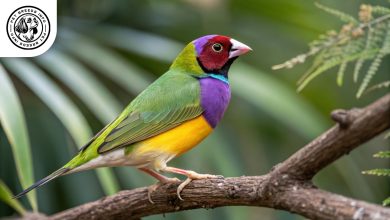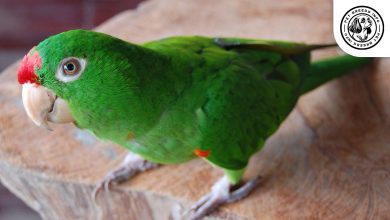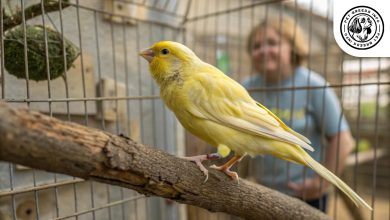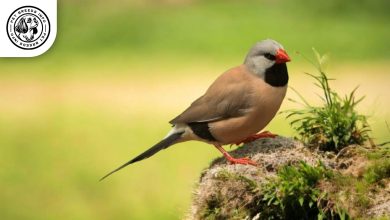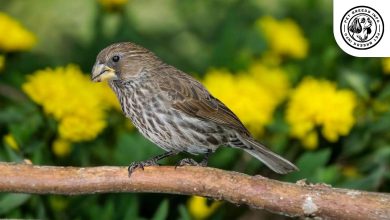Plum-crowned Pionus Bird: Personality, Lifespan, Food & Care
General Introduction of the Breed
The Plum-crowned Pionus (Pionus tumultuosus), also known as the Plum-crowned Parrot, is a beautiful and intelligent parrot species native to South America. It can be found in countries like Peru, Bolivia, and Colombia, particularly in mountainous regions. The breed has been admired for its striking appearance and quiet yet affectionate nature, making it a desirable companion for bird enthusiasts.
Table of Contents
| Common Name | Plum-crowned Pionus |
| Scientific Name | Pionus tumultuosus |
| Origin | South America (Peru, Bolivia, Colombia) |
| Size | Medium; 28–30 cm, 200–250 grams |
| Lifespan | 20–30 years |
| Colors | Plum head, green body, bluish chest, red under-tail |
| Talking Ability | Limited vocabulary; can learn basic words and sounds |
| Noise Level | Low to moderate; quieter than most parrots |
| Social Behavior | Calm, affectionate, bonds closely with owners |
Physical Characteristics
The Plum-crowned Pionus is a medium-sized parrot, typically reaching a length of 28 to 30 cm. It weighs around 200 to 250 grams. One of its most distinctive traits is the deep plum-colored feathers on its head, contrasting with its predominantly green body.
Its plumage is predominantly green, with a bluish tinge on the chest and underparts. The under-tail feathers display a striking red coloration, a common characteristic of Pionus parrots. Its eyes are dark brown, and its beak is relatively short and curved, with a noticeable yellowish tone. The parrot’s tail is medium-length and slightly rounded.
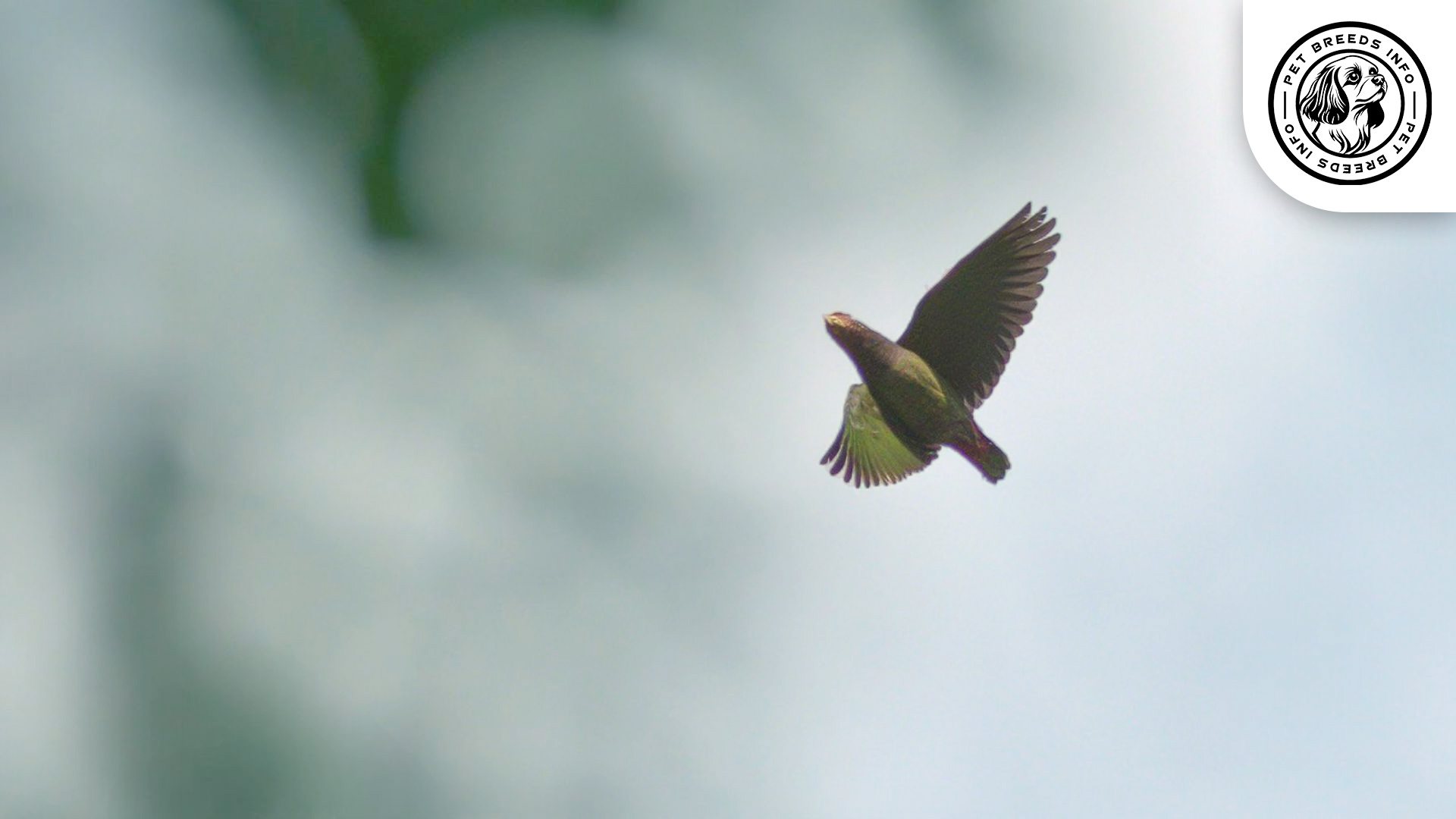
Personality and Temperament
The Plum-crowned Pionus is known for its gentle and mild-mannered personality. While not as vocal as other parrot species, it can develop a moderate vocabulary with training. It has a moderate energy level and enjoys interactive play but does not demand constant attention.
This parrot tends to form strong bonds with its owners, making it a loyal companion. It is social but reserved around strangers, requiring time to adjust to new people and environments. Due to its calm and patient nature, it is a good choice for families or individuals looking for a quiet yet affectionate bird.
Care and Maintenance Requirements
The Plum-crowned Pionus requires a spacious cage with ample room to stretch its wings and move freely. Daily exercise outside of the cage is essential to keep it mentally and physically stimulated. Interactive toys and climbing structures help prevent boredom.
Grooming needs are minimal, as this breed does not require frequent bathing. However, misting with water can help maintain feather health. Regular nail trimming and beak checks are recommended to prevent overgrowth.
Read More: Jersey Buff Turkey
The species is relatively hardy but can be sensitive to drastic temperature changes. It thrives in moderate humidity and should be kept away from extreme heat or cold.

Diet and Nutrition
A balanced diet for the Plum-crowned Pionus includes high-quality pellets, fresh fruits, and vegetables. Leafy greens, carrots, apples, and berries are excellent choices. Seeds and nuts should be offered in moderation as occasional treats.
Certain foods, such as avocado, chocolate, caffeine, and salty snacks, should be strictly avoided as they are toxic to birds. Fresh water should always be available, and food dishes should be cleaned daily to maintain health.
Health and Common Medical Issues
The Plum-crowned Pionus is generally a healthy bird but may be prone to respiratory infections, fungal diseases, and vitamin A deficiencies if not provided with proper care. Regular vet check-ups are important to detect any potential health concerns early.
The average lifespan of this species ranges from 20 to 30 years with proper care and nutrition, making it a long-term companion for dedicated bird owners.
Read More: Pekin Bantam Chicken
Training and Behavior Management
These parrots respond well to positive reinforcement techniques. Training should begin early to encourage good behavior and socialization. Teaching simple commands like step-up and recall can strengthen the bird-owner bond.
Since Pionus parrots are naturally independent, patience is required when building trust. Avoid punishment-based techniques, as they can cause fear and stress.
Interaction with Other Animals and Humans
The Plum-crowned Pionus is generally adaptable in multi-pet households but should always be supervised when interacting with other animals, especially larger or more aggressive pets.
It is suitable for families, including those with children, as long as young children are taught to handle birds gently. As a social species, it benefits from regular interaction but also enjoys some alone time, making it suitable for working individuals who can provide enrichment throughout the day.
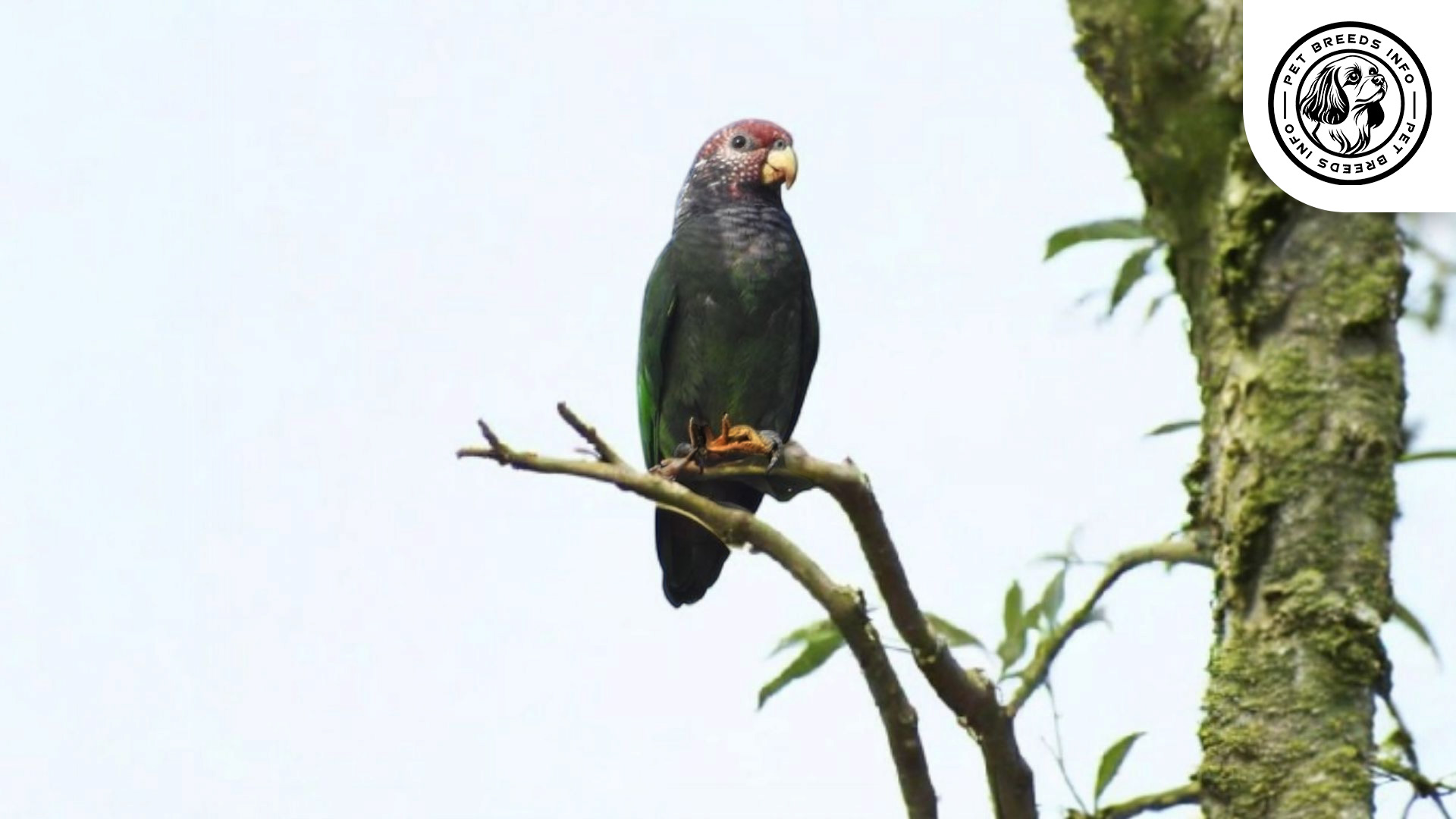
Price and Availability
The Plum-crowned Pionus is not as widely available as other parrot species, so prospective owners may need to seek reputable breeders or avian rescue organizations. The average price ranges from $600 to $1,200, depending on factors like age, breeder reputation, and availability.
When purchasing, it is crucial to choose a responsible breeder who provides health documentation and ensures ethical breeding practices. Adopting from shelters is also a great option for those looking to provide a home to a rescued parrot.
Conclusion and Final Thoughts
The Plum-crowned Pionus is an excellent choice for bird lovers seeking a low-maintenance yet affectionate parrot. Its gentle nature, moderate energy level, and beautiful appearance make it a rewarding companion.
Read More: Pin-tailed Whydah Bird
It thrives in a calm home environment where it receives regular interaction and mental stimulation. Prospective owners should be prepared for a commitment of up to 30 years and ensure they can provide proper care, nutrition, and socialization.
With the right dedication and environment, the Plum-crowned Pionus can become a cherished part of any household, offering companionship and joy for many years.
FAQ
Is the Plum-crowned Pionus a good pet for beginners?
Yes, it’s a great choice for calm households and beginners who want a quieter, low-maintenance parrot.
Does it talk or mimic sounds?
It has limited talking ability but can learn a few words and basic sounds with consistent training.
What does its diet consist of?
High-quality pellets, fresh fruits, leafy greens, and occasional seeds or nuts make up a balanced diet.
How long does a Plum-crowned Pionus live?
With proper care, they can live between 20 and 30 years.
Is it friendly with children and other pets?
Yes, if introduced properly and supervised, especially around young children or larger animals.
